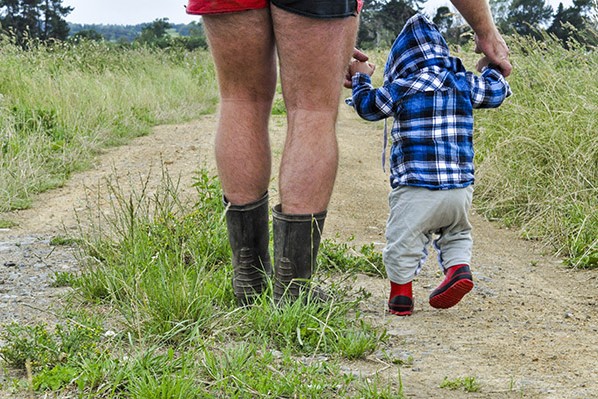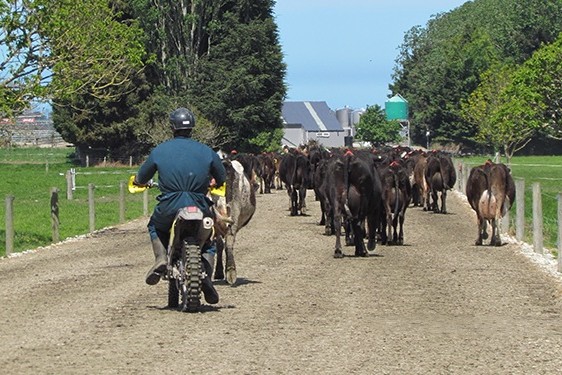Harriet Bremner has a chat with Farmstrong’s Gerard Vaughan.
I first met Gerard Vaughan several years ago as I was embarking on my own experience of grief and trauma and about to write my third book, Use Your Voice – an idea that stemmed from my own struggle to find my voice in the sometimes staunch society we live in.
Gerard was instantly supportive of my children’s book idea. This is the kind of person the project lead and spokesperson of Farmstrong New Zealand is.
Gerard was born in Wellington and although he grew up as a city boy he believes his generation was lucky as he spent his weekends and holidays on his cousin’s sheep and beef farm at Ohuka, near Wairoa. Because of this connection to rural NZ, Gerard was always able to identify that ‘rural’ is a different world. This had a huge impact on him as a child and he has fond memories of having access to the rural way of life.
Gerard loves family values within our farming communities, how we connect with others around us and the practical nature of farming in NZ.
Gerard’s career has always been largely based on having a huge interest in human behaviours and behavioural psychology, working in programmes where things have not been easy. He knows that life happens and throws a lot of challenging stuff at us but we don’t learn that at school, we learn it as we go but if we had the tools to know how to manage these challenges then we would have managed a lot better – looking back at our own lives so far. Taking into account his background in psychology and knowledge of rural life, Gerard saw the programmes or approaches in NZ were not designed for rural people specifically and Farmstrong was a good opportunity to combine these two things to learn how to navigate life on the farm. This is even more important, Gerard says, because of the way we are all living. Stress + pressure + change = overwhelm.
This correlates with how farming has changed over the years. The unrelenting nature of being a good farmer while running a good business – used to be about muscle and now it is more about your ‘top paddock’.
We had a chat about the regulations that are at the forefront of many conversations at the moment and this is what Gerard says he would ask a farmer regarding this:
- Are you noticing the level of support that is actually around us?
- In psychology, we have a negative bias naturally but how do we change our mindset to look at how we can work out the best solution rather than panicking and buying into a certain sense of threat?
- How do we frame things? If someone was to be negative towards ‘farming’, he suggests trying with a response like; Do you understand our food systems and the production around it? Starting a conversation here makes the person think about things on a deeper level as this question also affects the consumer, not just a grower.
We chatted about helping others and how best to go about it. Gerard talks about the science of small habits. Start with small changes. Think about these things below or ask these questions when speaking to someone to help them or someone who wants to help someone else:
- Do you know what you want?
- Who would you listen to/who might be your best messenger? E.g. Sam Whitelock, Kane Brisco or a friend, doctor, or mentor.
- Do you want to be around for the future, for your family, children, grandchildren and so on?
On an emotional level, Gerard loves that Farmstrong is ‘by farmers, for farmers’ that have honest, genuine conversations and it makes him feel humbled it is helping people.
Secondly, Gerard talks about surveys where they question about 450 random farmers and their feedback shows 21% surveyed have improved their personal wellbeing due to Farmstrong, showing it does have a positive impact on rural New Zealanders. They want to see farmers turn up to work and enjoy it, not just survive it.
Gerard’s final top tip for you was to read Kane Brisco’s book – Tools for the Top Paddock. It is a fantastic read.
- If you know you need some support or know of someone who does, visit farmstrong.co.nz





